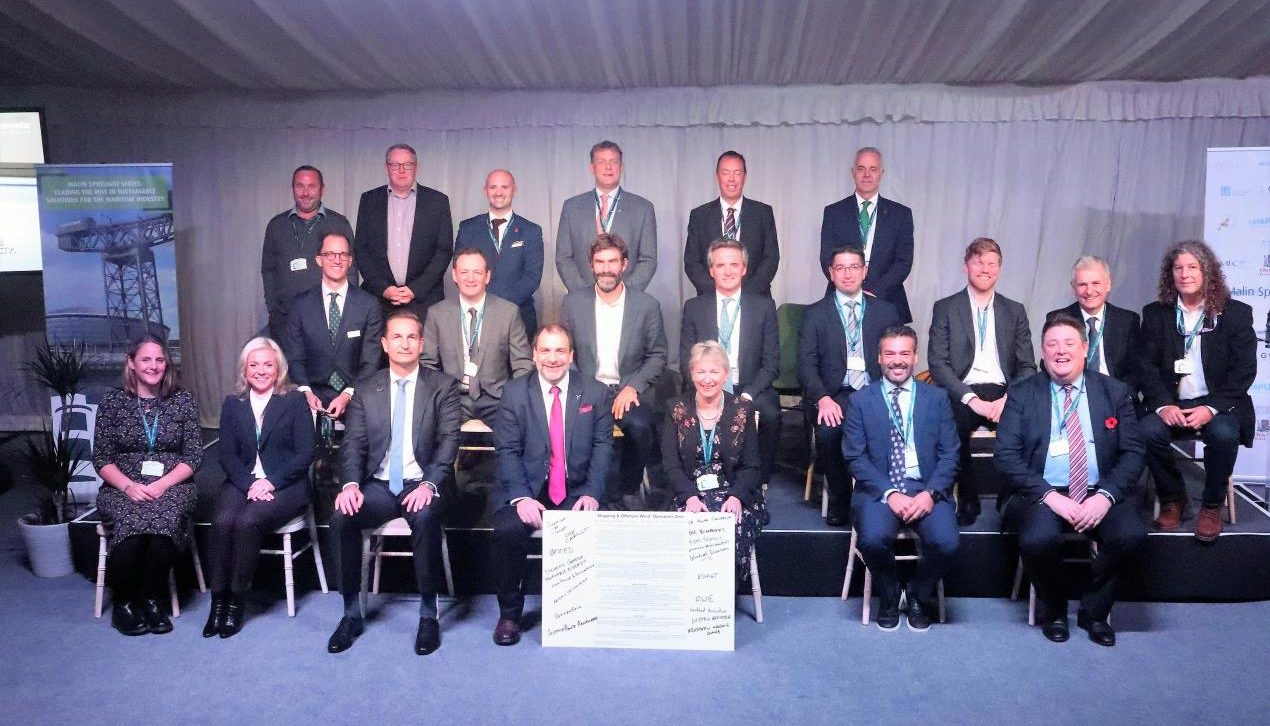The UK Department for Transport and the Offshore Renewable Energy (ORE) Catapult have unveiled the Department’s ‘Operation Zero’, which aims to accelerate the decarbonisation of offshore wind operations and maintenance (O&M) vessels working in the North Sea’s offshore wind farms.
At an event as part of COP26 in Glasgow, Maritime Minister Robert Courts announced the initiative, which will convene a coalition of 28 founding signatories from across the offshore wind supply chain from the UK, Germany, Sweden, Denmark, the Netherlands and Belgium, including industry majors Siemens Gamesa, Orsted, RWE, Vattenfall, ScottishPower Renewables, Equinor, ABP, Lloyds Register, Bibby Marine, North Star Renewables and ORE Catapult.
The vision of ‘Operation Zero’ is for zero-emission vessels to be deployed at North Sea offshore windfarms by 2025, while also taking into consideration the land-side infrastructure solutions needed to upscale and maintain the operation of the vessels.
The initiative was informed by previous research undertaken by ORE Catapult and the Workboat Association, who developed a technology roadmap outlining a route to the decarbonisation of North Sea offshore wind O&M. It suggested that the industry will build as many as 1,400 new vessels between now and 2050 just for O&M, including more than 300 SOVs, as we scale from the 25GW[1]of European operational offshore wind we have today to 400GW by 2050 (with 100GW based in the UK), which equates to a sixteen-fold growth in less than 30 years.
Achieving an accelerated decarbonisation scenario for North Sea O&M would result in reducing carbon emissions by 1.2 MtCO2e per year compared with a ‘business as usual’ approach (the equivalent of taking 240,000 cars off the road). And UK and North Sea shipyards could also steal a competitive advantage by leading the development, design, build and operation of these high-value vessels. If the UK captures 25% of the European O&M vessel-building market, this could generate revenue between £2.2 to £4.2 billion out to 2050, supporting 1,400 direct and 2,500 indirect jobs.[2]
Maritime Minister Robert Courts said: “To meet our world-leading net zero goals and secure a sustainable future for the planet, we must decarbonise every aspect of every industry including the boats and ships used to maintain green technology such as wind farms.
“We’re bringing together 28 leading companies in the maritime and offshore wind sectors to drive forward our goal of having zero emission vessels in the North Sea by 2025 and demonstrate the value that industry collaboration can have on decarbonising entire industries.”
Andrew Jamieson, CEO of ORE Catapult, said: “The offshore wind industry is committed to a rapid transition to net-zero operations and provides a fantastic springboard for broader maritime decarbonisation. Right through the supply chain, we’ll see growth and job creation opportunities that will aid the transition from the maritime diesel fuels of today to the zero-emission, high-value technologies and skills of tomorrow, with much of this growth taking place in coastal communities where it is most needed.
“Innovation is essential if we are to achieve this vision. Operation Zero provides a solid foundation for the future of collaborative innovation between industry partners, and with the support of government. ORE Catapult is fully committed to Operation Zero and we look forward to working to support the industry to innovate and accelerate the transition to net-zero whilst creating economic opportunity for the UK.”
Paulina Hobbs, CEO Service for Siemens Gamesa, added: “SGRE are delighted to be signing up to the Operation Zero pledge where we will work with companies right across the O&M vessel value chain to make cleaner wind farm marine logistics a reality. With SGRE currently chartering in excess of 20% of all O&M vessels across the North Sea wind farm operations, we have a responsible role to drive innovation, collaboration and support the industry take the ambitious steps that are required.”



























